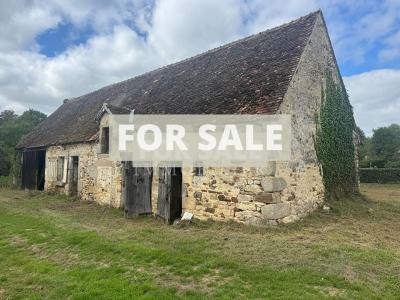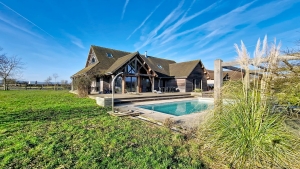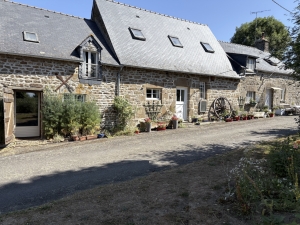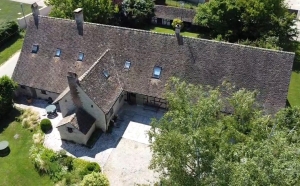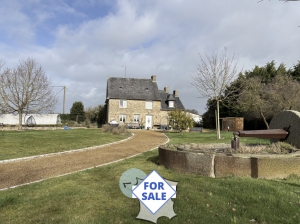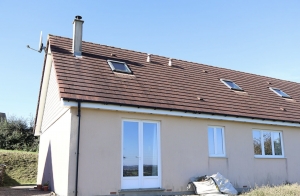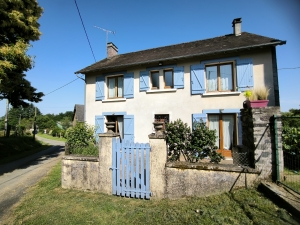Club Clé France: Legal Guide to French Succession Law and Inheritance Tax

We are proud to work in partnership with Ashton KCJ - Legal services. If we think our clients need further legal advice or have a specific legal question that needs solicitor involvement when buying or selling a property in France we can recommend...
Matthew Cameron and his team for expert advice.
Original article supplied by Ashton KCJ - Legal Services.
Introduction:
Subject to limited restrictions, English law allows you to leave your estate to anyone of your choice. In France, protected heirs – normally your children – will have a fixed right to at least a minimum interest in your estate. Your surviving spouse is a protected heir to a certain extent. Other relatives or unmarried partners are not protected heirs. Thus you cannot cut your children (which includes adopted children and those from previous relationships) out of your estate under French law. The age of the children is of no relevance. Step-children are not protected heirs.
If at the date of your death you live in France, all of your worldwide assets (except land and buildings outside France) are subject to the rights of protected heirs. If you are not domiciled in France, this only applies to land and buildings in France.
What constitutes 'domicile' for these purposes is an issue that needs to be addressed on a case by case basis – not least because the English definition of the word 'domicile' differs from the French definition. Certain other jurisdictions, such as Spain, do not make the same distinction between land and buildings and other assets, so again a more detailed analysis would apply if you live in Spain.
The minimum amount due to protected heirs is known as the legal reserve, the remainder being the disposable portion. If a child predeceases, having left children of his own, those children would share the amount that would have passed to their parent had they survived. The legal reserve must go to the protected heirs, regardless of the wishes of the deceased. This is as follows:
• One child: the reserved portion is half of the estate
• Two children: the reserved portion is two-thirds of the estate divided equally
• Three or more: it is three-quarters of the estate divided equally between them.
If a child predeceases leaving no children of his own, he is treated as not having existed, and his share is distributed between the surviving children of the testator. If there are no children, but there is a surviving spouse, then the spouse is able to take all of the deceased’s estate, in preference to the deceased’s parents.
There are circumstances where people can renounce future interests. There are various possibilities, including the right to enter into a formal agreement with the family under which you can, as a potential beneficiary, forego any inheritance to which you may have an entitlement in the future (for example in favour of your own children). Any steps to renounce are very burdensome.
There are specific formalities to address for such issues, and as such it would be important to consider carefully the procedures as well as the aim, to establish if such an option would be suitable.
Another area of concern is where a couple buy a property in France, and one or both of them dies leaving minor children domiciled in England. For various technical reasons, it can prove difficult to sell, mortgage, let or otherwise dispose of the property until the youngest child turns 18. It would be necessary to apply to the English court to obtain authority to dispose of the property.
Another difficulty is where a couple remarry, having children from previous marriages who do not get on with their new stepfather or stepmother. On the death of the first spouse, the survivor ends up owning the property together with the children of the partner’s former marriage. Possible methods of avoiding these difficulties include purchase en tontine and purchase via a French company.
If a property is owned en tontine the entire property will pass to the survivor, as if it were owned in the survivor’s sole name from the moment of purchase. None of these methods will necessarily give an absolute guarantee that the survivor will inherit all in place of the children – there may often be situations where those children could challenge on the grounds that they have been disinherited and not accorded the rights granted to them by French law.
Lifetime gifts:
For the purposes of calculating the disposable and reserved portions, all gifts can be added back into the estate regardless of how long before death the gifts were made, and regardless of the intention of the gifts. Having calculated the reserved portion, if the value of the estate is inadequate, then a clawback claim can be made against the gifts. The claim is made against the most recent gift first, and so on. Gifts could include gifts made into trust. In other words, gifts made years before the donor dies could be reclaimed under French law.
Matrimonial property rights:
Under French law a marrying couple enter into a matrimonial contract which will affect the way their property is owned. Different forms of contract exist, making the position unlike that in the UK.
Separation of assets (séparation de biens):
Under this system, any asset registered in one spouse’s name is considered to be owned by that spouse. Any assets registered in joint names are considered to be owned equally. A couple married in the UK (or in most other common-law countries such as the Republic of Ireland) are considered to be married under this regime in French law in default of a specific marriage contract. It means that on the death of one spouse, the protected heirs can make a valid claim against all assets registered in the name of the deceased spouse; and 50% of many assets registered in joint names.
Universal community (communauté universelle):
This system involves all of the assets belonging to the couple (usually with the exception of certain personal items such as clothing) being placed in community ownership. A British married couple can enter into such a contract in relation to their French property. They may also choose to include a special clause which allows all French assets to pass on the first death to the surviving spouse without the payment of French inheritance taxes, thus effectively avoiding French succession law. It should be noted that a change of matrimonial regime is not effective against the rights of children of previous relationships.
Joint ownership of property:
There are two ways to own French property jointly:
• en indivision (tenancy in common); and
• en tontine (similar to a joint tenancy under English law)
It is very important to appreciate the significant differences of these methods of ownership.
Ownership en indivision:
You each own your half (or other specified amount) of the house, which on your death devolves according to French succession law. This is how most French lawyers put your property into joint names in default of specific instructions to the contrary, although it can have major disadvantages. If a couple owned property en indivision and the deceased had children from a different relationship, the survivor would end up owning jointly with step- children. This may of course be entirely what you wanted – for example where each had two children from previous relationships, then on the death of both of them the French house could – with suitable estate planning – be held jointly between the four in equal shares.
Ownership en tontine:
A tontine clause works to ensure that the survivor of joint owners will own the house absolutely. It can only be inserted at the time of purchase and cannot be added in afterwards. This is rarely used in France other than by British couples, and you may have to be very insistent with the notaire who may regard it as a fraud against your children, even though it is perfectly legal. In general, if tontine ownership is the most suitable option for you we will be able to reassure the notaire that we have explained all of the advantages and disadvantages of owning property in this way.
Under a tontine, the surviving spouse is deemed to have owned all the property from the beginning and takes it all. The survivor then has complete freedom to dispose of the property as he or she wishes.
However the sale of a property when both parties to the tontine clause are alive is only possible if both consent; if one declines to sell, the other cannot force the sale. In the event of a matrimonial dispute, a court can have difficulty making an order in relation to the property because so long as both parties to the tontine are living, there is uncertainty as to who is the owner. A court could therefore only order a sale by both parties.
As to the French inheritance tax position, if there is a large difference in the ages of the parties to the tontine, (or if there are other reasons whereby one party has a reduced life expectancy, or if the parties contribute unequal shares of the purchase price), the French tax authorities might try to classify the tontine as a gift and tax accordingly. The children of the first to die may also use such a difference in life expectancy as a reason to challenge the tontine structure.
On the death of the second spouse the children of that spouse will inherit. If they are children of both spouses they will, in effect, have 'lost out' as they will receive their tax-free allowance (abattement) only in the estate of the second parent to die instead of receiving an allowance in the estate of each parent. This point is unlikely to be of concern if the property in France is only of a moderate value.
If the second person to die had no children of their own, and intended simply to leave everything back to the children of the first to die, then they will have been substantially disadvantaged – had they inherited from their natural parent, then preferential tax rates would have applied, yet by inheriting from their step-parent they would have to pay French inheritance tax at 60%.
The situation is not the same with an unmarried couple: while the tontine would still work to pass the property to the survivor, the inheritance tax position would not be as for a surviving spouse.
Unmarried couples:
Unmarried couples have the major problem of inheritance tax being applied at a rate of 60% with the minimum tax-free allowance on anything that the survivor inherits from the deceased.
PACS and CPA:
The 'pacte civil de solidarité', or PACS, is a cohabitation agreement for unmarried couples, whether a same-sex or heterosexual couple. It has been in force since 1999.
There is no inheritance tax on the survivor of a couple in a PACS; they will be allowed to succeed to a tenancy in the name of the partner where that partner dies or deserts the home; they can be jointly liable for debts incurred by either of them for their daily and household needs; they can have a joint entitlement to French Social Security and other benefits.
It should be noted that the PACS does not confer any additional inheritance rights on the surviving partner and other steps such as tontine ownership will still need to be taken to ensure that the property passes to the survivor on the first death. Only French residents or French nationals can complete a PACS.
Up until recently, France has not recognised an English Civil. Partnership Act agreement (CPA), and therefore a same sex couple having completed a CPA in the UK would have suffered substantial discrimination in relation to assets in France or passing under French law. This position has now changed, such that no inheritance tax will be applied to any assets passing under French law between partners having completed a CPA.
Furthermore, it should be stressed that just as for the position under a PACS, the surviving partner under a CPA does not take any automatic rights of inheritance from his or her deceased partner. Thus specific measures will need to be anticipated to allow for the surviving partner to inherit, such as Wills, inclusion of a tontine clause in the purchase deed, constitution of a company or such other options as may be suitable.
Wills:
If you die without an English or a French Will, your estate devolves under the French laws of intestacy. If you leave children or grandchildren, they will receive all of your assets, except that your spouse has a life interest (and can use the income) in one quarter of the estate, or may take one-quarter absolutely, depending on the circumstances. If there are no children, then the assets will pass to a surviving spouse, parents, grandparents, brothers, sisters, aunts etc. The rights of a surviving spouse do not apply if the couple are divorced or legally separated.
By virtue of certain international legislation, British Wills are valid in France, although it may be preferable to complete a separate French Will for your French estate (and again this may be your whole estate if you move to France permanently). It is usually advisable to have two Wills if you have assets in the UK and in France. Trying to prove a French Will in the UK, or an English Will in France may mean that the process will be slower and more expensive. The concept of probate does not exist in French law and property passes 'automatically' on death to the heirs. Nor does France recognise trusts, so as well as translation of the document into English, the notaire may require clarification of the actual effect of the Will.
You should always use lawyers experienced in French law and English Law to make your French Will; do not try to make a home-made Will as such documents often turn out to be defective. If your Will is only to cover your French assets, this must be made crystal clear in the new Will; otherwise it may read as being your 'last will and testament' covering all assets worldwide.
It is important to consider various points of French, English and international law when your Wills are being prepared, to ensure that they will be completely valid: indeed depending on their form and content, issues such as how they are written, whether they are witnessed and where you are when they are completed, can have an impact on whether they are in fact valid.
It is also important that the two Wills do not overlap, and that one does not revoke the other. We have detailed experience in preparing French and UK Wills, and indeed are happy to work alongside your own existing UK solicitors if you would rather they keep your UK Wills. We would of course also be delighted to prepare both your English and French Wills for you.
The succession process:
If there is an inheritance tax liability a 'déclaration de succession' must be filed within 6 months of the death (12 months if the deceased died outside France) to avoid possible tax penalties. If the deceased was deemed UK domiciled on death, then the notaire will require a Grant of Probate, which itself would need to be translated for use in France.
Trusts in France:
One major complicating factor for applying an English Will in France is that it will inevitably contain trusts. Complications and tax consequences can flow from any situation where a trust has an impact in France. This impact could be the property held in a trust, or indeed the location of the 'settlor' (the person who creates the trust), the trustee, or any of the beneficiaries. Complications can arise on any sort of trust, not just Will trusts.
It is, therefore, rarely beneficial to anticipate using trusts as a method of ownership of property in France.
Company purchase:
Shares are not classed as real property, even if the company owns real property. Consequently in limited circumstances a possible way to avoid the rules of French succession law applying to the estate of a non-French domiciliary is to place all French real property into a corporate structure. However there are potential disadvantages to this form of ownership of which you may need to take account. You should therefore only consider this form of ownership structure with full advice beforehand to ensure it is the most suitable option.
There can be a number of potential tax problems arising from such structuring. If you own shares in a company which owns a French house, you do not own a house in France, the company does. All you own are the shares in the company. Therefore, when you die, the ownership of the house does not change; it is the shares which change ownership, and succession law applies to these shares as items of personal property, so that they will pass in accordance with the succession law rules of the country where you are domiciled, or permanently resident up to the time of your death.
However it is important to note that while the strict French inheritance rules can normally be avoided, so that the shares can be left to anyone, French inheritance tax is still payable on them as if there were a legacy of French real property to that beneficiary.
Thus if the beneficiary is not related to the deceased he or she will have to pay inheritance tax at 60% against the value of the proportion of the property that the shares represent.
Purchasing through a non-French company:
Rarely will it be suitable to buy a French property through a UK company. There are many tax disadvantages, including the fact that a UK company cannot be 'fiscally transparent' and so will always be subject to corporation tax. There are often adverse capital gains tax consequences when the property is sold. Care must be taken to avoid the imposition of an annual 3% tax charge, calculated by reference to the value of the French asset. You will also be subjecting the company to dual accounting and tax declaration obligations.
Shareholders who have the use of the property may be liable to tax on the 'benefit in kind'. UK resident purchasing in a French company The use of a commercial company, which will be subject to French corporation tax, will have consequences similar to those for a UK company. There are however a number of French forms of company that are not treated as commercial trading companies.
Most commonly known among these is the SCI (société civile immobilière), which is fiscally transparent, so that liability for tax on the company’s income and gains falls on the shareholders.
The main advantages of using an SCI, if a company has to be used at all, are that:
• French succession law is avoided if the shareholder dies domiciled in the UK
• the company is not subject to the annual minimum payment of French corporation tax and the shareholders benefit from the favourable tax treatment of capital gains realised by individuals.
However care needs to be taken from a UK perspective – the shareholders should check with their local tax office in the UK to establish how any revenue would be assessed to UK tax.
French inheritance tax:
French inheritance tax is paid by each beneficiary (not by the deceased’s estate) by reference to the value received after deduction of all liabilities. Rates and allowances vary between each class of beneficiary. This means that where a deceased’s estate is split between say, surviving spouse and children, or perhaps children and step- children, then the amount each party would inherit may vary substantially, as the levels of the tax-free allowance and the rates of tax applicable can be completely different.
If you die domiciled in France, French inheritance tax is payable by each beneficiary on their share of your worldwide assets. If you die domiciled outside France, then only your assets in France are liable to French inheritance tax.
A transfer on death between spouses and members of a PACS or a CPA is exempt from inheritance tax.
French inheritance tax is due on the registration of the declaration de succession. But delays or payment by instalments can be obtained from the French Revenue, if necessary, although interest will be charged. French inheritance tax varies from 5% to 60%, depending on the proximity of relationship between the deceased and beneficiary. The tax is personal to each beneficiary, and the rates and allowances vary between different classes of beneficiary.
Surviving children and parents:
The rates of French inheritance tax payable by surviving children or surviving parents will vary between 5% and 40%, the calculation being made on a stepped scale by reference to the value of the legacy each beneficiary inherits.
The thresholds for the tax bands are regularly updated in the annual French finance legislation. We retain a copy of the current tax bands, along with the amount of the initial tax-free allowances which are also reviewed annually.
It should be noted that children and step-children are not treated in the same way. Unless the step-children have been adopted by the deceased parent (which is not always possible, and we can discuss this with you) then any legacy they may take would otherwise be subjected to the maximum rate of inheritance tax in France, as they would be considered strangers in blood.
Other beneficiaries:
After an initial tax free allowance (which is substantially lower than that offered to surviving children) brothers and sisters are currently taxed at a rate of 35% on the first band of an inheritance, and 45% on the remainder. Relatives to the fourth degree are charged at a flat rate of 55% with a tax-free allowance that is again lower than that offered to siblings. Relatives above the fourth degree or other beneficiaries who are not related to the deceased by blood or marriage pay a maximum rate of 60% with a minimum level of tax-free allowance.
Lifetime gifts:
Lifetime gifts may be a tax-efficient way of disposing of your assets. Rates of tax and allowances are generally the same as for inheritance except certain allowances (such as that available to brothers and sisters), and there are certain other allowances depending upon the relationship between donor and done.
Furthermore, in the event of a lifetime gift, there is a tax liability on a surviving spouse or the survivor of a couple having completed a PACS, which differs from the position on death.
EU succession rules:
The European Union has been working to simplify the administration of estates where people die owning property in more than one European member state. It is intended that starting in 2015, a person will be able to nominate the law of the country of which they are a national to govern the administration of their whole estate across the entire European Union.
While, the UK has not ratified the treaty, it is likely that British nationals will be able to avail themselves of that. However, it is apparent that these rule changes will not affect the tax position. Care must be taken when attempting to pass a French estate in accordance with English rules. In any event, any rule changes will only take effect in 2015 at the earliest, and it is prudent to plan for what could happen before then. It is yet unclear how a French notaire would actually deal with a succession if it were to be administered under English law, especially given that France still does not recognise trusts.
There is much to be resolved before any opportunity may arise for a person to subject his or her estate in France to English law. In the meantime, it remains important to plan for the devolution of a French estate in accordance with the rules of French law.
Want to contact Ashton KCJ ? - then simply complete the Enquiry form below:
The information that you give and that we obtain through you using this website may be used by this Company and by our partner companies only for purposes in connection with your use of this website and for marketing activities of this Company and partner companies. By using this site you confirm your consent to this. If you do not want to receive any marketing information from this Company and/or our partner companies then please notify us.
Ashton KCJ is authorised and regulated by the Solicitors Regulation Authority (Recognised Body number 45826). The information contained in this guide is of a general nature and specific advice should be sought for specific situations. We believe the information to be correct as at the time of publication, February 2013. While all possible care is taken in the preparation of this leaflet, no responsibility for loss occasioned by any person acting or refraining from acting as a result of the material contained herein can be accepted by the firm or the authors.
For everything you need to know about French property for sale visit www.clefrance.co.uk


